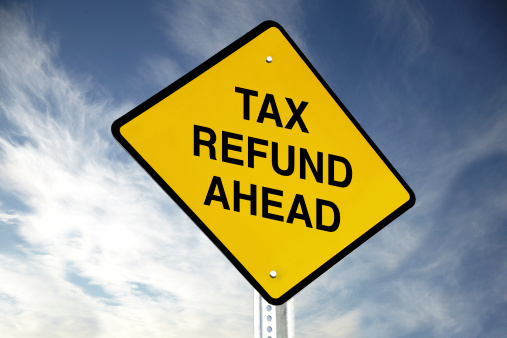Itin Number Poker
Posted By admin On 01/04/22The poker world is about to descend on Las Vegas for the World Series of Poker (WSOP) and a score of other tournament series. The tax environment has changed, so I’ve decided to do a thorough update of the tax situation. I’ll cover the basics of the tax situation, backing, foreign (non-US) backing, and non-American winners and what they will face with taxes. This post will be somewhat long, so I’m going to break this into sections that you can click on to open. The focus is on tournaments where tax paperwork is issued.
- An Individual Taxpayer Identification Number (ITIN) is a tax processing number issued by the Internal Revenue Service. The IRS issues ITINs to individuals who are required to have a U.S. Taxpayer identification number but who do not have, and are not eligible to obtain, a Social Security number (SSN) from the Social Security Administration (SSA).
- ITIN stands for Individual Taxpayer Identification Number. This number allows non-U.S. Citizens or residents to file U.S. Once you receive an ITIN, you can use it at the payout window.
If you won a big poker tournament or something like that or blackjack, if your winnings are past a certain threshold as a non-U.S. Citizen, if you don’t have your tax ID, like an ITIN, the casino will subject you to available withholding.
Itin Number Proof Identity Needed

The Tax Basics
If you win $5,000 or more net you will receive a W-2G (if you’re an American) or a Form 1042-S (if you’re a non-American). If you’re an American and you provide your social security number to the casino, there will be no withholding. If you’re a non-American and you have an ITIN (an Individual Taxpayer Identification Number) and you are from a Tax Treaty country, there will be no withholding. Otherwise there will be tax withheld: 28% for Americans and 30% for non-Americans.
So what are the Tax Treaty Countries? As noted in Publication 515, “Gambling income of residents (as defined by treaty) of the following foreign countries is not taxable by the United States: Austria, Belgium, Bulgaria, Czech Republic, Denmark, Finland, France, Germany, Hungary, Iceland, Ireland, Italy, Japan, Latvia, Lithuania, Luxembourg, Netherlands, Russia, Slovak Republic, Slovenia, South Africa, Spain, Sweden, Tunisia, Turkey, Ukraine, and the United Kingdom.”
But if gambling winnings of a resident of the United Kingdom isn’t subject to tax, why would a casino withhold? Because if there’s no ITIN, a casino must withhold. Many casinos used to be able to issue ITINs; that’s no longer the case. I go over the ITIN situation below.
Backing by Americans of Americans
Suppose Russ plays in a WSOP event and is backed by Scott. Scott has provided half of Russ’s buyin and Russ has agreed to give Scott 50% of his net winnings. Russ is lucky enough to win $10,000 net, so he will receive tax paperwork from the Rio Hotel and Casino (where the WSOP is played). What should Russ do?
First, before the tournament Russ should collect social security numbers from his backers. The IRS has a form for this: Form W-9. The backer completes the form (including signing it) and provides it to the individual he’s backing (not the IRS).
The IRS also has a form, Form 5754, designed specifically for the situation where you have backers. You include the names, addresses, and tax identification numbers (social security numbers or ITINs) of the backers along with their percentage winnings or the exact winnings. The casino is supposed to issue multiple W-2Gs. Unfortunately, the WSOP will not issue multiple W-2Gs even though the instructions to Form 5754 specify that the casino is supposed to follow the form [Note 1]. However, some other casino have been following Form 5754 (the Wynn and Venetian are two such casinos), so it’s still a good idea to have the form completed if you’re playing outside of the Rio.
So what should Russ do when he cashes at the WSOP? Russ becomes the casino for paperwork issuing; he must issue his backer(s) paperwork to show their winnings. It’s a fundamental principal of US tax law that everyone pays tax on their income, not anyone else’s. Russ should issue Form 1099-MISC(s) to his backers showing their shares of his winnings.
A couple of comments about Form 1099-MISC. First, you issue one 1099-MISC to an individual per type of income per year. Thus, generally you will wait until the end of the year to send out your 1099s. Second, it’s far easier to obtain backers’ tax identification numbers before you pay them. You should make receiving appropriate tax paperwork (W-9 for Americans, W-8BEN for non-Americans) a requirement for your backers to receive their shares of your income. Third, note that Form 1099-MISC cannot be downloaded off the Internet. If you file paper Form 1099-MISC’s with the IRS, you must order the forms from the IRS. If you are going to paper-file your Form 1099s, you must also order Form 1096 (this is the cover page that you use to send 1099s to the IRS).
Backing: Non-Americans
What happens if an American is backed by an individual from a Tax Treaty country (such as Russia)? Under the US-Russia Tax Treaty, the gambling income of a Russian is not subject to US taxation. Second, what happens if an American is backed by an individual from a non-Tax Treaty country (such as Australia) or from Canada (the US-Canada Tax Treaty mandates withholding)? Finally, what happens if someone from a non-Tax Treaty country or Canada is backed by an American?
For all three scenarios, let’s assume I’m entering the main event of the WSOP (the buy-in is $10,000); my backer is paying $5,000 and is receiving 50% of my winnings. I place in the event and win $20,000, so my backer is owed $10,000 (all numbers before withholding).
Scenario #1: US Player Backed by an Individual from a Tax Treaty Country.
Let’s assume I’m playing and am backed by Ivan from Russia. I receive a W-2G for $10,000 (my net winnings). It would seem all I have to do is just pay Ivan his $10,000 share of my gross profit, right?
Wrong.

Even though Ivan is from a Tax Treaty country, paperwork is required or tax must be withheld. Ivan needs to provide you either a Form W-8BEN or a Form W-8ECI. The Form W-8BEN is used to note the benefits of a Tax Treaty. Ivan would complete the form, including his ITIN and note the Article of the Tax Treaty that specifies that there would be no withholding. As long as you receive the completed Form W-8BEN you can then pay Ivan his share. If you pay by cash or casino chips, make sure you get a signed receipt from Ivan acknowledging his receipt of the money.

What if Ivan doesn’t have an ITIN? Then you must withhold at 30% even though he’s exempt from withholding. You would need to complete Form 1042-S and depending on the amount withheld very quickly remit that money using EFTPS to the IRS. (EFTPS is now the only method available for making withholding deposits to the IRS.) Ivan can get the money back by filing a Form 1040NR following year-end.
If Ivan has a business operating in the US, he would provide Form W-8ECI with either his Employer Identification Number (EIN) or his ITIN. This will allow you not to withhold to Ivan.
Note: Even if no withholding is required a Form 1042-S must be submitted to the IRS. We can see that even the easy scenario isn’t necessarily that easy.
Scenario #2: US Player Backed by an Individual from a Non-Tax Treaty Country
This case is relatively straightforward. Let’s say your backer is Jon from Canada or Australia. (Although Canadians can get some to all of their money back by filing Form 1040NR after year-end, you are required to withhold on their income per the US-Canada Tax Treaty.) You must withhold 30% of their winnings. You would pay him all of his $5,000 investment and 70% of his $5,000 winnings ($3,500) for a total of $8,500. You would complete Form 1042-S with his information and note that $1,500 of his $5,000 of income has been withheld. Depending on the amount withheld, there can be very quick deadlines for remitting that withholding to the IRS; that withheld funds must be remitted using EFTPS.

Scenario #3: Non Tax-Treaty Player Backed by an Individual from the US
This is the ugly scenario. Suppose Jon is backed by Russ from the US. Russ isn’t subject to any withholding on his money (he’s a US citizen, after all) and is more than willing to provide a completed Form W-9. Unfortunately, because Caesars will not issue multiple W-2Gs/Form 1042-S’s, all of the $10,000 Jon wins will be subject to withholding. So Jon will receive $17,000 (his $10,000 entry plus $7,000 of his $10,000 in winnings).
Jon is left with two bad options. He could pay Russ $3,500 (half of the amount he has won). Russ will rightly be annoyed as he should receive $5,000. Jon has no way of telling the IRS that $1,500 of his tax withheld is for Russ [See Note 2 below].
Alternatively, Jon can pay Russ $5,000 and now he only has $2,000 of his winnings (rather than the $3,500 he should have). That method probably doesn’t appeal to Jon at all.
Itin Number Poker Game
Unfortunately, neither option is palatable to both individuals and these are the only two options available. There is a solution: Americans should not back individuals from non-Tax Treaty countries. (The better solution, Caesars issuing multiple W-2Gs/1042-S’s, will have to wait until the IRS goes after Caesars on their policy.)
There are some other things that need to be pointed out. The participant will likely have to issue 1099-MISC’s or 1042-S’s to individuals. You probably don’t want everyone to know your social security number. If you’re a professional gambler, there’s a solution: Apply for an EIN. You can do this at no charge online at the IRS website.You must have an EIN if you are going to have to withhold funds.
Next, if there’s a possibility you are going to be a withholding agent, you must have both an EIN and an EFTPS account. After you get the EIN, immediately enroll in EFTPS. Your passwords are mailed to you; this takes about 10-14 days from the date you enroll, so get this going now if you are going to be playing in the 2017 WSOP and this applies to you.
Third, you can give Caesars a piece of your mind (nicely, though) and let them know about the ridiculousness of their policy. That’s especially true if you’re from Australia and you would like to be backed by an American (or someone from a country with a favorable Tax Treaty with the US).
Non-Americans and ITINs
[See Update Below]
Up until last November if you were a non-American and you placed in a poker tournament held in the US, most casinos were authorized to issue you an ITIN as an “Acceptance Agent.” So if you were a resident of a Tax Treaty country (see above), you would not be subject to withholding.
Enter Congress and the IRS. The PATH Act (“Protecting Americans from Tax Hikes” Act) passed in December 2015; a provision in it has been interpreted by the IRS to mean that only the IRS can issue ITINs. The IRS sent letters earlier this year to all casinos that have been authorized to issue ITINs to cease and desist from doing so.
So let’s say that Jon Smythe from the United Kingdom plays at the WSOP. Mr. Smythe does not have an ITIN, but he’s clearly eligible to get one (he’s from a Tax Treaty country for gambling). He places in an event and wins $10,000 (net). So Mr. Smythe is left with some bad options:
– He can have $3,000 withheld and take $7,000 today. Eventually he will get the $3,000 back.
– He can leave the money with the WSOP [see Note 3 below], apply for an ITIN, and later go back to the WSOP and get all $10,000.
To get the $3,000 back, Mr. Smythe will have to apply for an ITIN and file Form 1040-NR with the IRS the following year. It takes approximately two months to receive an ITIN after applying. Form 1040-NR is released around February 1st (of the following year); it takes about six months to receive a refund after filing Form 1040-NR. The refund is issued as a check mailed to the address on file.
There are three methods available to apply for an ITIN. No matter which method you use you will need to complete Form W-7 and have the required backup documents (generally, your original passport).
You can apply by mailing your Form W-7 with backup documents to the IRS. This is generally done with the filing of a tax return. You can provide a prepaid courier envelope to receive back your passport. Your ITIN will be issued in about two months.
You can also make an appointment at an IRS office. The IRS will review your backup documents for your W-7 and make “certified copies” and forward the W-7 to Austin, Texas (where ITINs are issued). If you have a Tax Treaty reason, you can obtain an ITIN. The last time I checked the wait time to get an appointment here in Las Vegas is six weeks.
I was also informed by a local IRS Acceptance Agent that the IRS has not cut them off (yet) from reviewing W-7 paperwork and forwarding paperwork and “certified copies” to Austin. This may be a good method for someone who is in Las Vegas to apply for an ITIN. Do realize that the ability of local IRS Acceptance Agents of reviewing W-7 paperwork could be cut off at any time. Also, if you use a local Acceptance Agent you will not obtain an ITIN immediately; your ITIN will still be mailed to you in two months.

But what if you already have a valid ITIN and are from a Tax Treaty country? Then there are no issues. You will just let the casino know your ITIN number when you cash. (You may be asked to provide other documentation and/or be asked to complete a Form W-8BEN.)
Itin Number Purpose
There is a “Technical Corrections Bill” languishing in Congress that would fix this issue. Given the current acrimony in Congress I don’t expect it to pass anytime soon.
UPDATE:
The WSOP sent the following tweet out:
We r processing ITINs 4 r int'l guests if they win at the Rio & anticipate no issues 4 int'l guests who need similar assistance @ the WSOP https://t.co/zAPTwejImD
— WSOP (@WSOP) May 22, 2017
Itin Number Process
This obviously begs the question: Why would two Strip casinos (both of whom will be holding summer poker tournament series) be told by the IRS not to issue ITINs while the Rio is allowed to? I have no idea, but this is good news for the WSOP and poker players (as long as it lasts).
Itin Number Poker Games
[Note 1]: I recently became aware of a lawsuit in the Midwest where Caesars’ policy is being challenged. The lawsuit is scheduled for trial in late January 2018.
[Note 2]: It is likely the IRS would reject a Form 1040NR filed by Jon noting his extra withholding. The IRS won’t understand the issue given that there is no tax treaty issue (say, Jon is from Australia) and say, “Take it up with Caesars.” It’s a classic Catch-22.
[Note 3]: In prior years the WSOP has allowed winners to leave their money with the WSOP and obtain their winnings later. Anyone choosing this option should confirm with the WSOP that this can be done.
| The following terms and their definitions are taken from the IRS and they use these terms in their explanations of gambling. For gamblers terminology, please click here. |
Itin Number Price
| Action The amount of gaming activity happening in a casino, sporting event or specific game. Book Cage Cage Credit Card Rooms Casino Casino Cage Casino Gaming Industry Chip Coin Operated Gaming Device Complimentary (also known as 'Comp') Credit Line Drop Floating Casino Gaming Activity Gaming Commission Gaming Control Act Gaming Control Board House Individual Taxpayer Identification Number (ITIN) Land Based Casino Lottery Marker Pari-Mutuel Pit Progressive Jackpot Race Tracks Skim Slot Machine Tip Tribal Gaming
The term 'gaming' has been divided by IGRA into three classes; Class I gaming is defined as consisting of: (a) social games that have prizes of minimal value and (b) traditional tribal games planned in connection with tribal ceremonies or celebrations. Class II gaming primarily includes: bingo (whether or not it is electronically enhanced), pull-tabs, lotto, punch boards, tip jars, instant bingo, and any non-banking card games allowed by state law. Class III gaming primarily includes slot machines, casino games, banking card games, dog racing, horse racing, and lotteries. All tribal governments conducting or sponsoring gaming activities need to be aware of the federal requirements for income tax, employment tax, and excise tax. For further information reference the IRS Indian Tribal Governments office web site. Wager |